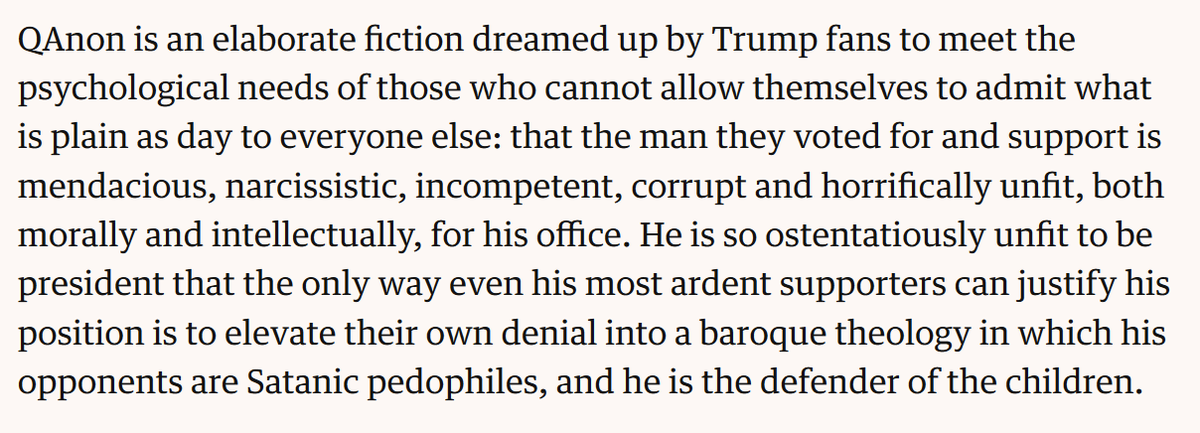Far-right politics has a standard script.
It goes like this:
A great evil stalks the land.
It’s a plot by a shadowy cabal.
Only a few of us have understood it.
A saviour is needed to rescue us from it.
He is justified in using any measure necessary to root it out.
Thread/
It goes like this:
A great evil stalks the land.
It’s a plot by a shadowy cabal.
Only a few of us have understood it.
A saviour is needed to rescue us from it.
He is justified in using any measure necessary to root it out.
Thread/
In other words, conspiracy theories are not an emergent or exotic property of far-right politics. They are a foundational principle. You cannot persuade people to endorse or commit atrocities unless they believe absurdities.
The QAnon conspiracy theory is a classic of the genre.
The QAnon conspiracy theory is a classic of the genre.
It claims that a cabal of Democrats, celebrities, the Rothschilds, Bill Gates etc etc are abducting children, abusing and torturing them and extracting their blood. Only Donald Trump can rescue the world from this horror.
As @MoiraDonegan points out:
theguardian.com/commentisfree/…
As @MoiraDonegan points out:
theguardian.com/commentisfree/…

But it’s not the only one. The Plandemic theory also slots neatly into the script. It claims that Covid-19 was deliberately engineered and spread by a shadowy cabal seeking to profit from vaccines (also involving Bill Gates).
Every conspiracy theory appears to be a gateway drug for the next one. I’ve watched people lose interest in a false story only when another, more bizarre conspiracy theory comes along. In my experience, when people fall down this tunnel, they seldom return.
So it's grim to see people who were on the left falling for these stories, and gradually aligning themselves with the far-right movements that generated them. If you spread a conspiracy theory, you might think you’re sticking it to the Man. But you’re paving the way for him.
• • •
Missing some Tweet in this thread? You can try to
force a refresh




